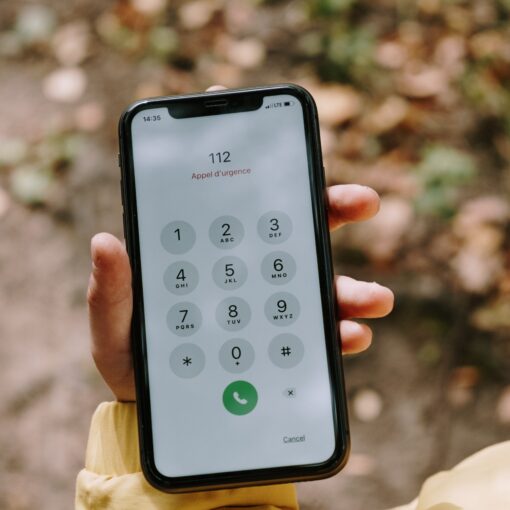Moving to a new country often raises questions about healthcare, and for British expats in France, understanding how the system works is essential to ensuring access to medical care when needed. France is known for having one of the best healthcare systems in the world, and as a Brit, you can benefit from the system, provided you understand how to navigate it. This guide will walk you through everything you need to know about healthcare in France, from registering with the system to finding a doctor and understanding your rights.
Understanding France’s Healthcare System
France’s healthcare system is primarily public, with a large network of hospitals, clinics, and private practitioners. The system is known for being high quality, with a focus on preventive care and excellent medical facilities. The government offers a universal healthcare system called L’Assurance Maladie, which provides reimbursement for most medical costs.
Healthcare in France is a blend of public and private options, but the state is involved in covering the majority of the costs. The costs for most medical treatments are partially reimbursed by the government, with patients responsible for covering the rest through either out-of-pocket payment or private insurance.
Key Features of the French Healthcare System:
- Publicly funded through taxes.
- Universal coverage for residents (including expats).
- High quality of care and highly trained medical professionals.
- Pharmacies for prescription medications, which are subsidized by the state.
Eligibility for Healthcare in France
To be eligible for healthcare in France, you must either be working in the country or be a resident who has made the appropriate arrangements. The rules for expats have changed somewhat post-Brexit, but you can still access healthcare as a British citizen if you meet the necessary criteria.
Expatriates and British Citizens
As a British citizen, you are eligible for French healthcare if:
- You are employed in France.
- You are a self-employed worker in France.
- You are a retired expat who receives a pension from the UK.
- You have been a resident of France for more than three months and are contributing to the French social security system.
How to Register with French Healthcare (L’Assurance Maladie)
To register with L’Assurance Maladie, you need to apply for a Social Security number. This is essential for getting reimbursed for medical costs and is typically done as part of your residence registration process.
- Gather the required documents: Your passport, proof of residence, proof of income or employment, and your birth certificate.
- Apply online or in person: You can apply for registration via the official French health insurance website or by visiting the local Caisse Primaire d’Assurance Maladie (CPAM) office.
- Wait for your Carte Vitale: After registering, you will receive a Carte Vitale, which is your healthcare card. This card allows you to access medical care and be reimbursed for part of your treatment costs.
Once you have your Carte Vitale, it is essential to update it if your circumstances change (e.g., changing address, changing job). And it might take a while so the fastest you do it the better!
How Does Healthcare Work in France?
Healthcare in France operates on a reimbursement system. This means that, in most cases, you will pay the medical bill upfront, and then the Assurance Maladie will reimburse a portion of it. In many cases, the state will cover 70-80% of costs for routine care, with patients responsible for the remainder, which is where top-up insurance (called mutuelle) comes in.
Doctors and Specialists
When you first arrive in France, you’ll need to register with a General Practitioner (GP), known as a Médecin Traitant. This GP will be your primary point of contact for medical issues and referrals to specialists. It’s important to establish a relationship with a GP as it helps ensure that your medical care is covered by the French system.
To see a specialist (e.g., a cardiologist or dermatologist), you generally need a referral from your GP. However, in certain cases (e.g., gynecology, dermatology), you may be able to see a specialist directly.
Emergency Care
In case of an emergency, you can go directly to the nearest hospital emergency department (Urgences), where you’ll receive care. If you’re in need of an ambulance, dial 15 for a medical emergency. The French healthcare system provides excellent emergency services, and most treatments are covered by the state.
Costs and Payments
One of the questions that many British expats have is how much they will pay for medical care in France.
Reimbursement System
The French health system works on reimbursement. After visiting your GP, specialist, or hospital, you will receive an invoice, and Assurance Maladie will reimburse a percentage of that cost. On average, 70-80% of medical fees are reimbursed, but the actual reimbursement rate depends on the type of care you receive.
Top-Up Insurance (Mutuelle)
To cover the remaining costs (the co-payment), many people in France take out a mutuelle, which is a private health insurance plan that supplements the public system. A mutuelle can cover the rest of your medical bills, such as:
- Co-payments for doctor’s visits.
- The portion of hospital bills not covered by Assurance Maladie.
- Certain medical treatments not fully covered by the state.
Many mutuelles also cover additional services, such as dental care, optometry, and physiotherapy, which might not be fully reimbursed under the public system.
How Much Does Healthcare Cost?
The cost of healthcare varies depending on the type of treatment and your level of coverage. For example:
- GP consultation: Typically, the cost is between €25 and €30. Assurance Maladie will reimburse you about 70%, and a mutuelle will cover the rest.
- Hospital stay: A hospital stay costs around €20 to €25 per day, depending on the type of accommodation and treatment. Assurance Maladie covers a significant portion of the stay, and a mutuelle can cover the remainder.
- Specialist consultation: The cost for a specialist can range from €50 to €80 or more, with Assurance Maladie covering 70% and the remaining amount typically covered by a mutuelle.
Private Health Insurance
While the public healthcare system is excellent, some Brits may choose to take out additional private health insurance to cover the cost of private treatments or faster access to certain services. Private health insurance can also provide coverage for services like dental or optical care, which the public system may not cover fully or at all.
Types of Private Insurance:
- Top-up Insurance (Mutuelle): As mentioned earlier, this covers the difference between what the state reimburses and what you actually pay.
- Expats Private Health Insurance: These plans offer more comprehensive coverage, including private hospital rooms, faster access to specialists, andmore flexibility in choosing your doctor.
Prescription Medication
In France, medications are dispensed by pharmacies, and most prescriptions are subsidized by L’Assurance Maladie. Prescription medication costs are generally low, and the system covers a significant portion of the cost.
However, some medications may not be fully covered or may require additional reimbursement from your mutuelle. You can present your Carte Vitale at the pharmacy to ensure you receive the appropriate reimbursement. They will anyway ask you to provide it so they can do it (they’re used to it don’t worry).
Dental and Optical Care
Dental and optical care in France are often not fully covered by the public healthcare system. However, dental visits, including basic treatments like check-ups and fillings, can be reimbursed partially by the state.
For optical care, the French system will typically cover a portion of the cost for glasses or contact lenses, but more extensive eye care may require additional private insurance.
What to Do in Case of a Problem
If you experience a problem with your healthcare in France, there are several steps you can take:
- Contact the CPAM (Caisse Primaire d’Assurance Maladie) for questions about reimbursements or issues with your registration.
- If you disagree with the reimbursement amount, you can submit an appeal.
- If you need to change your Médecin Traitant, you can update your details online.
France’s healthcare system offers excellent medical care, and as a British citizen, you are entitled to access it if you meet the residency or employment requirements. Registering with L’Assurance Maladie, getting a Carte Vitale, and understanding the reimbursement system will ensure that you are covered for most healthcare needs.
To sum up, while the public system covers most of the cost, consider taking out mutuelle insurance to ensure you’re fully protected, especially for services like dental or optical care.
Navigating the French healthcare system might seem complicated at first, but once you’re familiar with how it works, you’ll find that it provides high-quality, accessible care.




